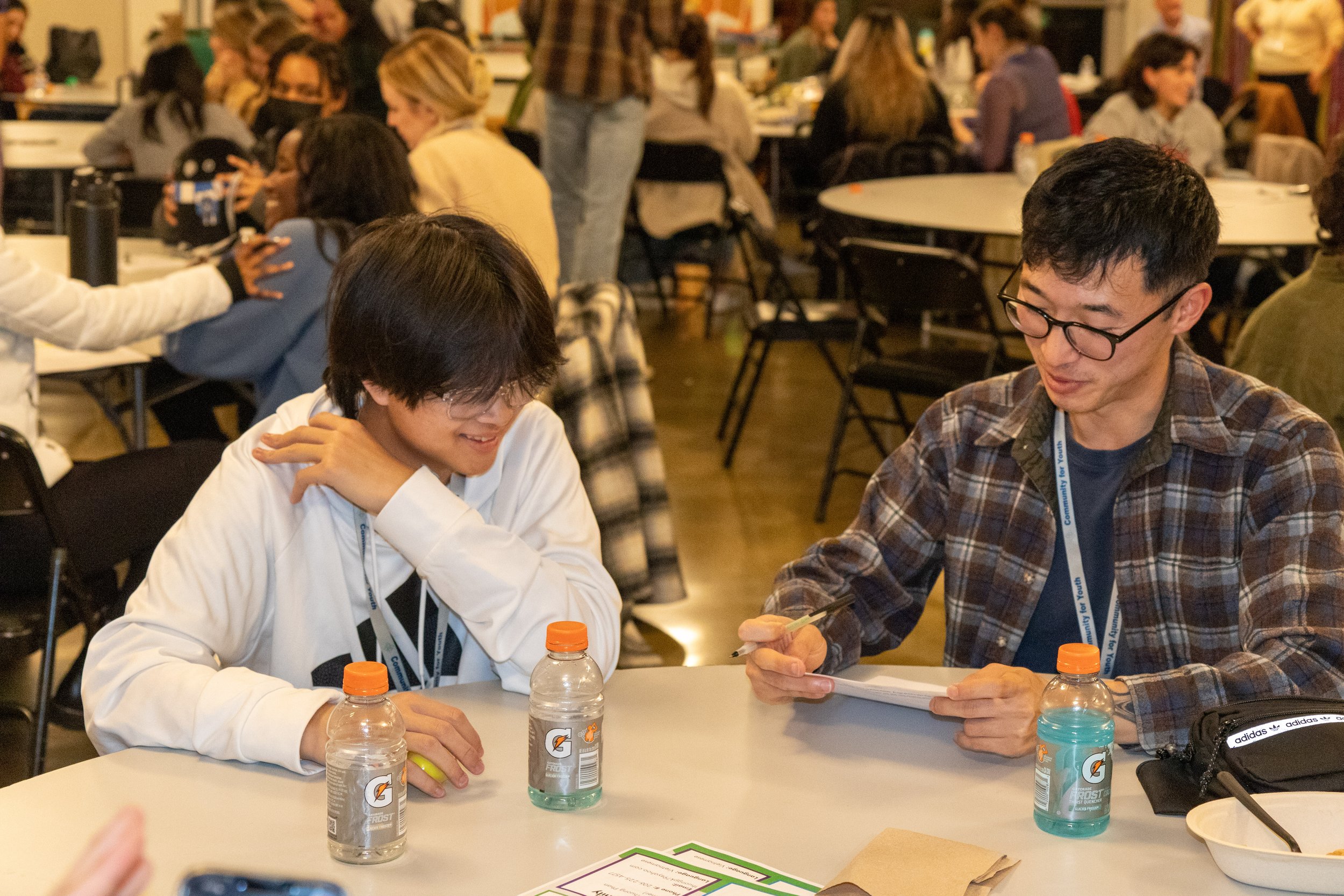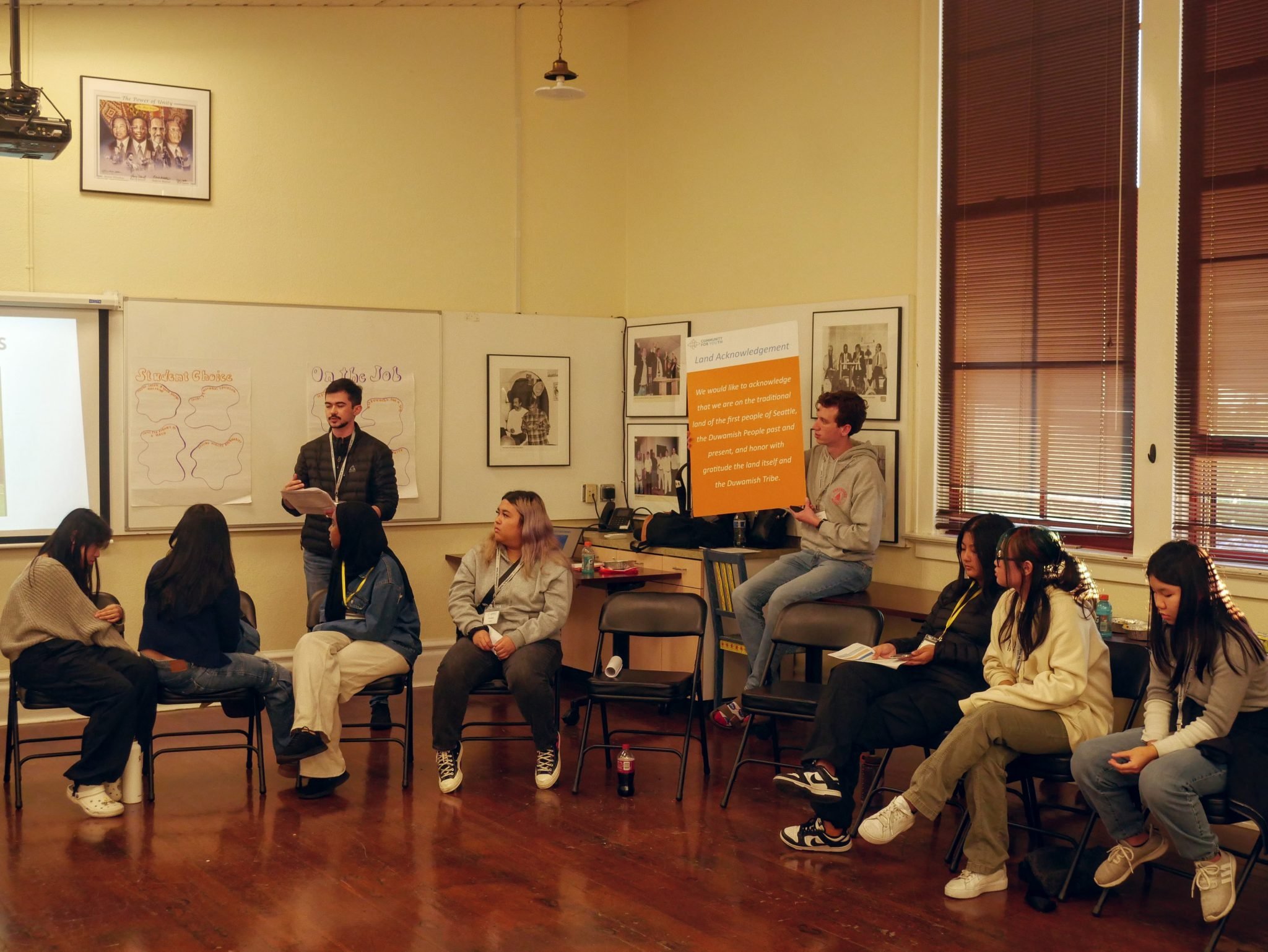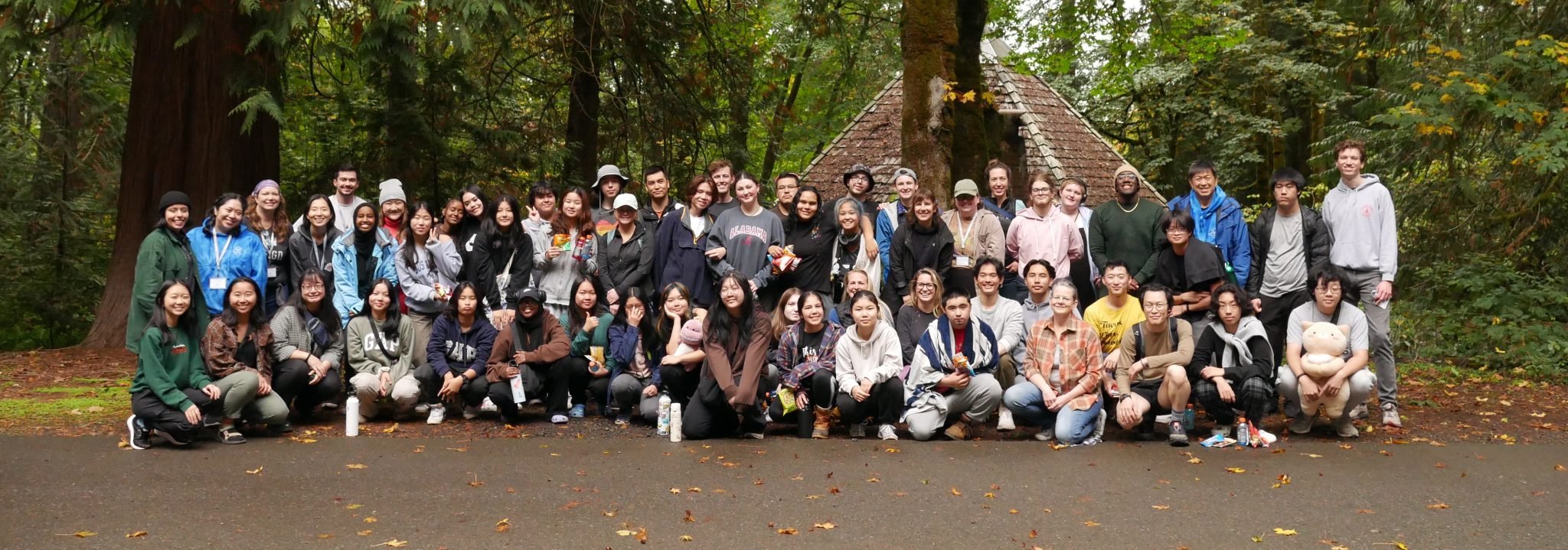National Mentoring Month: How Community for Youth Steps Past Traditional Mentoring
January is National Mentoring Month, and at Community for Youth, we really can’t think of a better way to kick off the New Year.
National Mentoring Month is a time to celebrate and amplify the power of mentoring. For our organization, National Mentoring Month is also a time to reflect on and share the ways that Community for Youth steps beyond traditional mentoring, and why it matters.
Since the inception of program-supported mentoring in the early 1900s, youth mentorship programs have undergone change and evolution alongside our understanding of effective mentoring practices. Historically, mentoring has been a tool for white saviorism and assimilation, communicating to youth that adopting White and middle-class culture makes them more respectable.1 Mentoring performed through this lens helped mentors feel good about themselves, but did little to address the problematic systems that mentees were forced to navigate.2
Fortunately, many contemporary mentoring organizations are in the midst of shifting to approaches that mitigate harm and consciousness around systemic barriers to youth development.
Community for Youth strives toward this by incorporating Critical Mentoring as described by Dr. Torie Weiston-Serdan. Critical Mentoring embraces values such as Diversity, Equity and Inclusion and Student Voice & Choice to create an experience that centers the young person and helps them navigate and push back against systems of oppression. When we practice Critical Mentoring, our youth and adults are partners and collaborators in working to disrupt inequity and oppression for personal and social change.
At Community for Youth, a few unique practices align our programming with Critical Mentoring, and ensure that we deliver programming that makes a difference.
1. We offer continuous training for mentors and connect mentors with peer support.
For many adults interested in mentoring, youth mentorship presents both a learning curve and an exciting opportunity for personal growth. Mentoring relationships, like all relationships, are unique, and they will likely have ups and downs, moments of joy, moments of challenge, and “pauses”. Because Community for Youth recognizes the complex and dynamic nature of these relationships, we kick off the program year with a training series that lays the foundation for a positive mentoring experience, and host recurring mentor workshops every two months throughout the program year.
Topics covered during mentor workshops include (but are not limited to) cultural humility, attunement, youth voice, and effective conversations about behavior change. These sessions also create a space for peer support, and time is carved out for mentors to “troubleshoot” and discuss their experiences in group settings.
By supporting our adult participants throughout their journey and giving them evidence-based resources to be the best mentor possible, we can prepare them for working with youth who may have drastically different lived experiences from themselves, and mitigate harm or misunderstandings that may result.
2. We welcome and honor youth voices by creating opportunities for student feedback and leadership.
The students we serve are capable, powerful, resilient, and knowledgeable, and they have a lot to teach adults! We give our students power, voice, and choice in all aspects of our programming, from beginning to end.
We open our program year with a Student Welcome Night, in which students are invited to suggest and vote on activities, topics, and formatting for monthly Community Workshops. We collect feedback from students through continuous, data-centered evaluations, and through our student leadership team, LeaderCorps.
By providing youth with multiple opportunities to plan and respond to CfY programming and activities, we activate our students as leaders and place them at the center of their own experience and story.
3. We proactively implement feedback to adapt our programming and better serve our community.
The needs of our students are dynamic and rapidly evolving.
As the world we live in changes quickly, so do the challenges faced by youth in our community. For example, programming that was effective and helpful to youth in a pre-pandemic world may not be as relevant in 2024.
To understand the needs of our students and plan programming that is most effective, we ask our participants to fill out evaluations at the beginning of the program year and throughout the program year after every Community Workshop, training, and CfY-related event. This data informs our planning process for events remaining in the current year, and for events to take place in the following year.
We also meet with our LeaderCorps team once-a-month to reflect on recent events and activities, discuss feedback, and come up with ways to put student suggestions into practice at upcoming Workshops. When we intentionally gather and implement youth feedback, we are able to deliver content that is relevant, engaging, and important to our students.
Supporting mentors, honoring student voices, and implementing feedback are just a few of the ways that our program seeks to positively shape our community and best serve our students. A core value that forms the foundation of our organization is Integrity. We are committed to bringing our best selves to this work because it matters. Youth are the leaders of tomorrow, and we have a responsibility to support and empower them in their most formative years.
We often say that mentorship cultivates growth in both mentors and students – this growth extends to our organization and leadership. After 37 years of serving Seattle-area high school students, we remain committed to learning and adapting, and our approach to mentoring doesn’t begin and end with the practices outlined above.
In 2024, we look forward to yet another year of growth, connection, and fulfilling our mission: to inspire and support students to be their best selves through mentorship, learning experiences, and a powerful community.
Weiston-Serdan, Torie. “Clearing the Air and Purifying the Water.” Essay. In Critical Mentoring: A Practical Guide, 14–15. DULLES: STYLUS Publishing, 2017. ↩︎
Weiston-Serdan, Torie. “Critical Mentoring Supplement to the Elements of Effective Practice for MentoringTM.” MENTOR, November 1, 2022. https://www.mentoring.org/resource/critical-mentoring-supplement-to-the-elements-of-effective-practice-for-mentoring/. ↩︎




